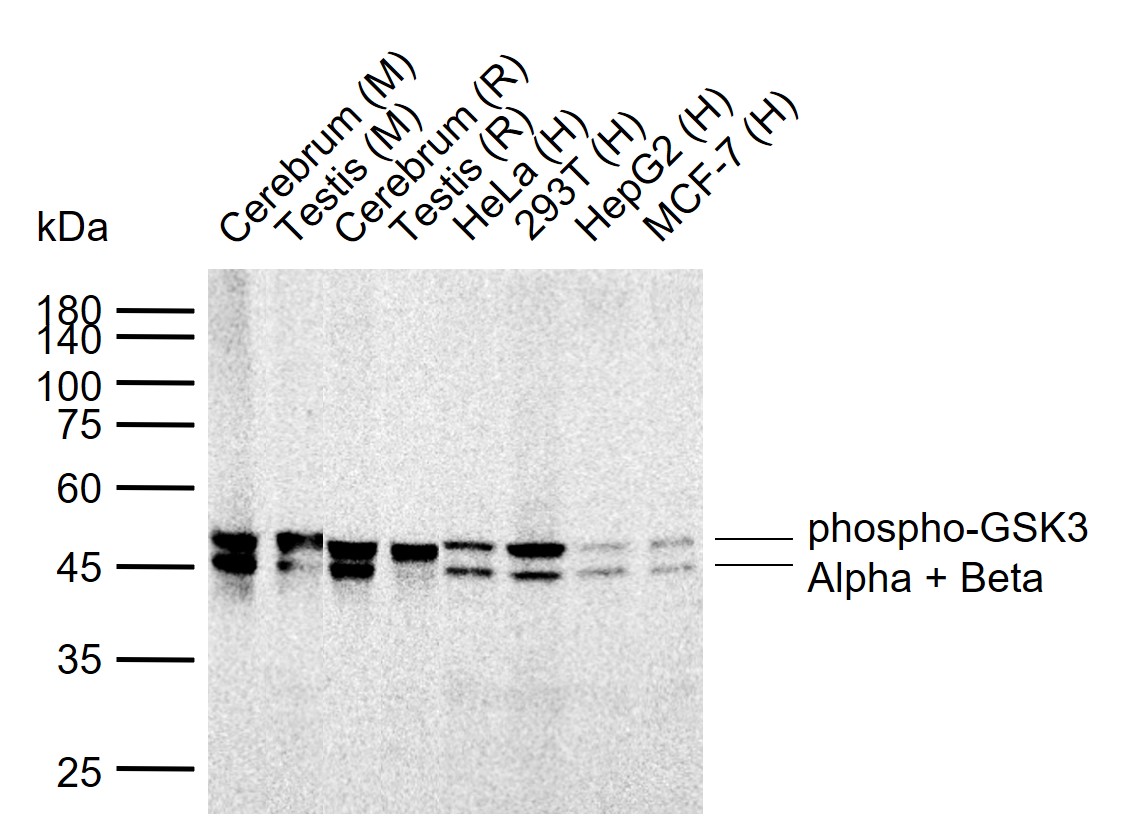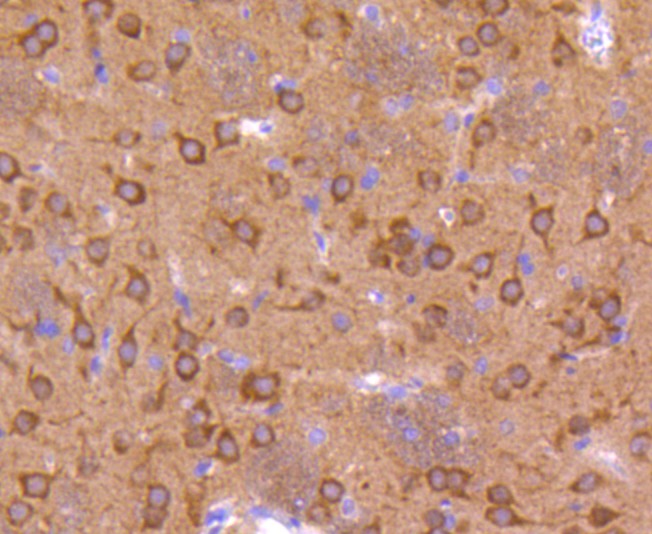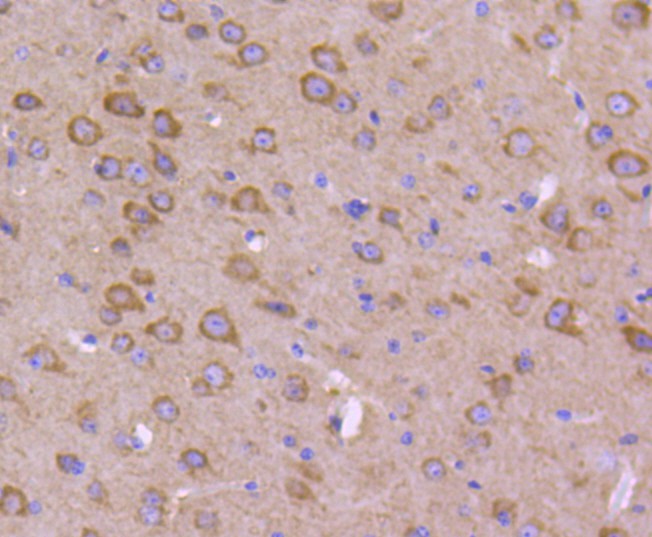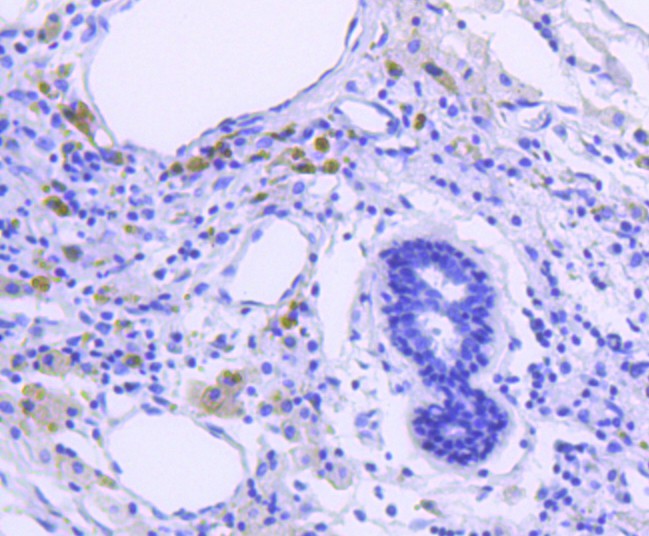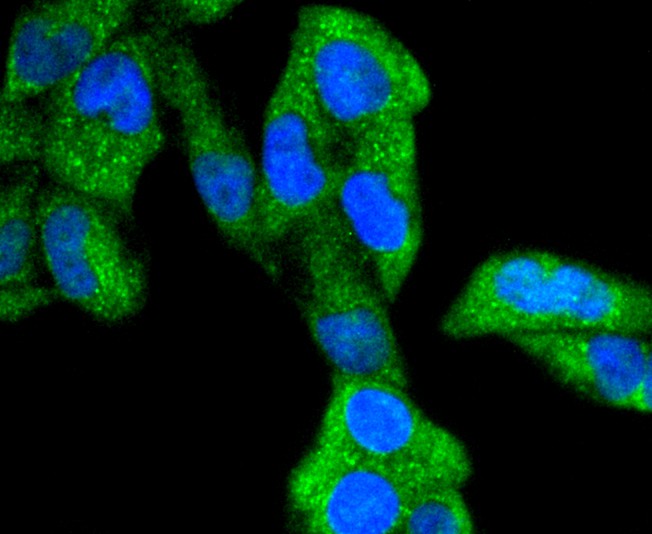sales@bioss.com.cn
techsupport@bioss.com.cn
400-901-9800
Host: Rabbit
Target Protein: phospho-GSK3 Alpha + Beta (Tyr279+Tyr216) Recombinant Rabbit mAb
IR: Immunogen Range:
Clonality:
Isotype: IgG
Entrez Gene: 2932
Swiss Prot: P49841
Source: KLH conjugated Synthesised phosphopeptide derived from human GSK-3 Beta around the phosphorylation site of Tyr216:
Purification: affinity purified by Protein A
Storage: 0.01M TBS (pH7.4) with 1% BSA, 0.02% Proclin300 and 50% Glycerol. Shipped at 4℃. Store at -20℃ for one year. Avoid repeated freeze/thaw cycles.
Background: Glycogen synthase kinase 3 (GSK3) is a proline directed serine threonine kinase that was initially identified as a phosphorylating and inactivating glycogen synthase, a key enzyme in glycogen metabolism. Since then, it has been shown to be involved in the regulation of a diverse array of cellular functions, including protein synthesis, cell proliferation, cell differentiation, microtubule assembly/disassembly, and apoptosis. GSK3s substrate specificity is unique in that phosphorylation of substrate only occurs if a phosphoserine or phosphotyrosine is present four residues C terminal to the site of GSK phosphorylation. There exists two isoforms of GSK3, alpha and beta, and they show a high degree of amino acid homology. The two isoforms of GSK3 are strictly regulated via phosphorylation. Phosphorylation of GSK3 beta on Ser9 (Ser21 in GSK3 alpha) by protein kinase B (PKB) causes its inactivation is the primary mechanism responsible for growth factor inhibition of this kinase. Activation of GSK3 beta is dependent upon the phosphorylation of Tyr216 (Tyr279 in GSK3 alpha). Upon activation, it has been shown to phosphorylate a number of different cellular proteins, including p53, c-Myc, c-Jun, heat shock factor 1 (HSF1), and cyclin D1. GSK3 beta also has been shown to phosphorylate aberrant sites on the microtubule associated protein tau, which is critical for the progression of Alzheimer's disease. GSK3B is involved in energy metabolism, neuronal cell development, and body pattern formation.
Size: 100ul
Concentration: 1mg/ml
Applications: WB=1:200-1000,IHC-P=1:20-100,IHC-F=1:400-800,IF=1:100-500,ICC/IF=1:20-50
Cross Reactive Species: Human,Mouse,Rat
For research use only. Not intended for diagnostic or therapeutic use.
